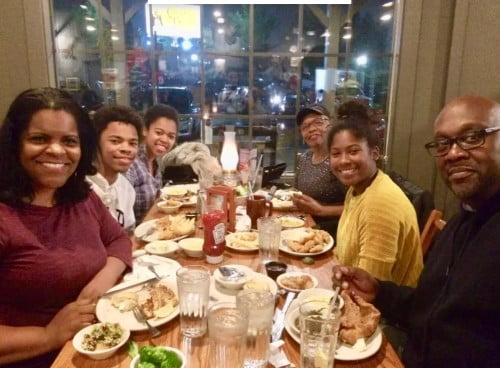Spending money wisely, saving cash and investing can all help build wealth – as well as bring you greater personal happiness.
As I prepare for continued wealth building in 2020 and into the next decade, I wanted to share a dozen ways that my husband, Earl, and I spent strategically, invested and built wealth in 2019:
-
We invested in our business and had one of our best years ever
Our financial education company, TheMoneyCoach.net LLC, owns and operates two properties: our free financial advice site, AskTheMoneyCoach.com, and our video-based financial education learning platform, called Money Coach University.
We generate revenues in three primary ways: we sell and license financial content (including books, digital articles and video); we provide money-management workshops and seminars; and we offer media services to consumer-friendly corporations and non-profits.
In 2019 we focused on scaling operations and locking in contracts with great clients.

-
We bought a gorgeous, newly built home in Texas
Even though the new house we purchased in Texas is more than twice the size of our prior home, it was 30% cheaper. We still have a mortgage, but it’s a smaller obligation. Our property taxes are lower too, at least for now. (Since the house was just finished in 2019, local tax assessors won’t hit us with a bigger property tax bill until later in 2020).
Most important, moving to a tax-free state (Texas) was huge for us since we’d paid a ridiculous amount in state income taxes to live and operate our business the past 15 years in one of the most expensive states in the country (New Jersey).
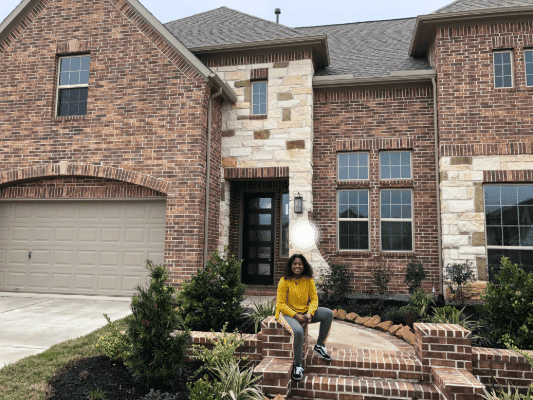
-
We rented out our old residence in New Jersey
The New Jersey home we own and previously lived in has tremendous sentimental value to us, not to mention great economic value. So we didn’t sell it.
We’re renting it out, keeping a family asset, and building our net worth all at the same time since the property is cash flow positive.
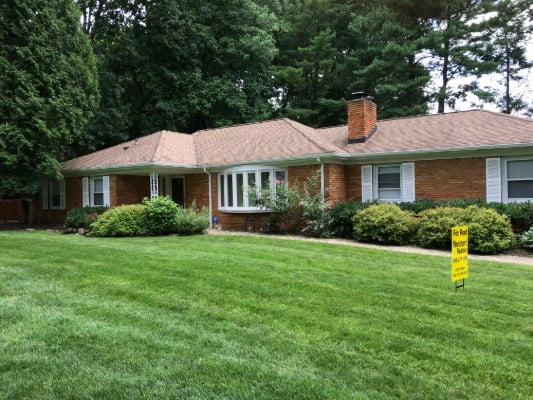
-
We purchased a rental property in North Carolina
Earl and I are both bullish on real estate as an investment and a retirement planning tool. Using property ownership to build wealth is also something we’ve taught all three of our kids.
In this instance, the property we bought in North Carolina in July 2019 was a townhouse for our son, Jakada, who is attending NC State University in Raleigh.
Buying the townhouse achieves three financial goals for our family:
1) we get rental income from a tenant;
2) Jakada gets free housing, since the roommate’s rent payment covers most of property’s expenses; and
3) Once Jakada has lived there for one year, this property ownership will help him establish North Carolina state residency. When he is declared an in-state resident, in August 2020, that will lower the college tuition we pay for him by about 70%. We did the same strategy with our oldest daughter, Aziza, when she was a student at the University of Texas at Austin.
Read: How The Money Coach Bought Her Daughter a Condo and Would Do It Again – Business Insider
-
We lowered our mortgage and built equity in our condo property in Austin
Speaking of Aziza, she continues to live in the Austin, TX condo she moved into in August of 2016. It’s the same condo we purchased for her in January 2017. For three years, her roommates covered the mortgage on the condo property. (As you can see, we like using OPM – Other People’s Money – to facilitate property ownership).
In the fall of 2019, however, Aziza said she wanted to pay rent to help cover the condo’s mortgage. She graduated from UT Austin in December 2018 and started working full-time in January 2019. So she could, in her words, “afford it.”
When I told her that my goal was for her to be able to live rent-free, and save her money, her reply was that she’d been living rent for three years. She also said she wanted greater responsibility and more privacy with fewer roommates.
And besides, even after paying rent, she said she would still be able to save 50% of her salary. I couldn’t argue with that.
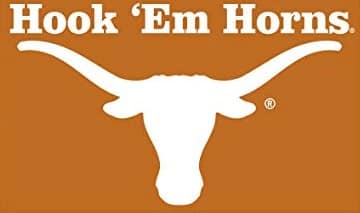
-
We maxed out our solo 401(k) retirement contributions
Saving aggressively for retirement is one of our most important priorities. So we have committed to putting the maximum possible contributions in our solo 401k plan. Thankfully, that’s a goal we accomplished in 2019, despite allocating large sums of money toward other goals.
-
We maxed out our HSA contributions
As self-employed individuals, we pay our own healthcare costs, and it’s a huge annual expense. One thing that makes paying medical, dental and vision costs a bit easier is the fact that we have a high-deductible Health Savings Account, or HSA.
I love HSAs because the cash in them can grow over time, and even be used later in retirement. Additionally, our Health Savings Account gives us three tax benefits.
First, our HSA contributions are 100% tax deductible.
Also, the interest we earn in our HSA account accumulates tax free.
Finally, as long as we take the money out for qualified medical expenses, our HSA withdrawals are tax-free as well. That’s a triple tax benefit … Ka-ching!
-
We added to our “rainy day” funds and our emergency cash cushion
Earl and I believe you can never have too much cash to be prepared for life’s emergencies and unexpected events. For my husband, especially, having a financial “war chest” is always welcome.
In fact, Earl has a funny cartoon on our office wall with a picture of a guy – who has big eyes and a huge grin on his face – happily pushing an entire wheelbarrow full of cash. “That’s me! ” Earl often says.
He’s only half-joking. So in 2019, we kept putting away money into savings in order to have money for a “rainy day” as well as emergency funds.

-
We paid off an auto loan – and added a new vehicle, nabbing a tax break
In 2018, after my 2002 Toyota Highlander died, we bought a used BMW 750i from my sister and financed a part of the purchase.
By early 2019, we paid off the BMW in full. We just didn’t want to have that car note hanging around longer than necessary.
However, by December 2019, Earl’s 2003 Chevy Tahoe was acting up. So we made the decision to get a new SUV, a 2020 Ford Explorer ST, for business use.
Pro tip: under current tax law, when you buy an SUV with a gross vehicle weight of 6,000 pounds or more, and you use the car exclusively for business, you can write off 100% of the vehicle purchase in the current tax year. In our case, that’s a $50,000+ tax deduction for 2019. Learn more about the Section 179 deduction here.
Since a car is a depreciating asset, which declines in value as soon as you drive it off the lot, I wouldn’t normally include a vehicle in a conversation about building wealth. In this instance, though, as a business owner who likes to implement smart tax maneuvers, the transaction absolutely helps our bottom line financially.
You know what they say: “It’s not about what you make, it’s about what you keep.” So never forget to take into account the impact of taxes on your wealth!
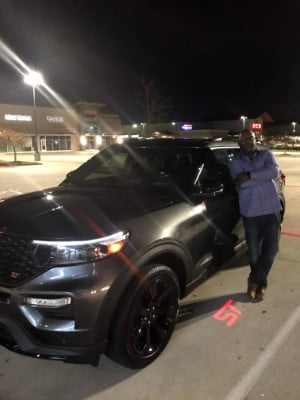
-
We invested in our health by exercising more and losing weight
Some people say health is wealth. I think that good health is actually priceless and essential as you build wealth.
So in 2019, I re-committed to a healthier lifestyle. This pays off now, via a higher quality of life, and in the future with (hopefully) a longer life, as well as fewer medical bills.
Our move to Texas, where there weather is way better than New Jersey, helped to get us outdoors more – even now in the winter! – and has been a positive force in us investing in our health.
In 2019, I wound up losing 30 pounds an even won a national competition, the Life Time 60 Day Challenge. In 2020, we plan to focus even more on our health.
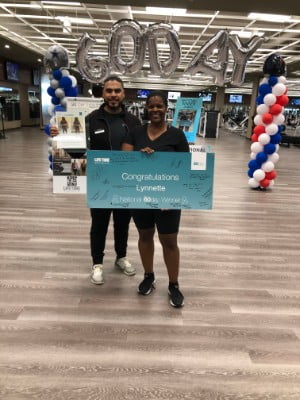
-
We maintained our term and whole life insurance policies
Hopefully, Earl and I will both live until age 100 (or beyond)! But no matter when one or both of us die, we feel strongly about leaving assets to our children, including life insurance proceeds.
Even though insurance can be costly to maintain, I do like knowing that my whole life policy is steadily building cash value over time. Using life insurance is a great way to build wealth for
now and generations to come.
-
We met quarterly with our accounting team to strategize about taxes
We have a good accounting team and have used the same CPA firm for the past seven years. However, I really wanted to ensure that we utilized their knowledge and expertise to the fullest.
So in 2019, I made a point to check in on a quarterly basis with our CPA, and the financial planners at the firm, in order to strategize about our unique tax and money-management concerns.
In the process, I learned a lot, got plenty of great tips and advice, and was able to make better decisions that will strengthen our wealth-building efforts.
Again, tax guidance and financial planning are crucial for any long-term wealth plan.
At this point, Earl and I continue to plan for our future and we feel good knowing that we are on track to become “work optional” in five years.
As you reflect on the past year, in what ways did you get financially healthier or make smart spending, saving, investing and wealth-building choices?
Also, as we enter this next decade: what are your financial goals for 2020 and beyond?

